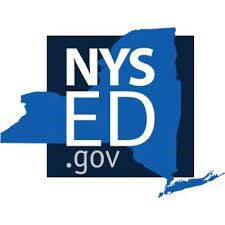An important facet of good teaching is the ability to pose essential questions that push students into thinking deeply about the content they’re learning. Let’s apply the same principle of posing essential questions to the APPR legislation that is in place in New York State.
Why does the federal government and SED feel the need to give teachers and administrators a “score” when very few countries in the world rate their teachers and administrators in this manner? Why aren’t those in charge recognizing that some of the best testing experts who have looked at Value-Added Models say that they are too unreliable to be used in the manner they are currently constructed? How is it that the students in our schools and districts will be subjected to more “bubble in the answer” tests in order to use the results to “score” teachers? Why aren’t those in charge concerned about the loss of creative and innovative thinking in our schools as a result of the “test prep” that will inevitably occur? How can people look at the results of schools districts that did not “perform well” and realize it has a great deal to do with money and poverty?
The “elephant in the room” question is how did we get to this place in education?
Quite frankly, we are all a bit to blame.
Having worked in several districts for the past 33 years let me share my thoughts on why we are in the mess we currently find ourselves in. Although the vast majority of teachers and administrators are great professionals who are at the top of their game, as a system we have not done what is needed. It is apparent to me that both teachers and administrators need to shoulder some of the blame for allowing the ill-conceived APPR ideas to be in place.
Some examples…
- There is a district in Nassau County-a very good one I might add-that under the guise of “academic freedom” has created a committee largely composed of teachers that misunderstands teacher academic freedom from being part of a system. Academic freedom was never meant to mean that teachers can teach whatever they want to. It does not mean that teachers can have their own grading policy in terms of how many assessments they can give and how those assessments should count. What it does mean is that after an agreement is reached on the content that will be taught, the curriculum that will be used, and the grading practices that will be in place-and as long as you are using best practices-you can teach in any way that will guarantee student success on agreed upon results. To think otherwise misses the point. Teachers do need academic freedom but an “anything goes” mentality” is not good for anyone.
- In other districts, administrators cannot have the faculty read an article or do any “work” during a faculty meeting if they want to avoid a grievance from the union. How is that in any way shape or form a professional attitude?
- On the administrative side of town, there are examples of things that are not much better. In some districts, administrators have done no informal observations, do not take the evaluation process seriously, and have run faculty meetings that are “information giving” events versus opportunities to lead. They are not out of their office enough building the “emotional bank account” with staff. They don’t see that leadership is not about the position you hold, but more about the respect and trust that you earn.
- As a group, administrators have also not been as vocal as we should have been in opposing ideas that make no educational sense. Until recently-as evidenced by the principal letter that many administrators and others have signed across NY State-we have not been as politically astute as we should have been. We also have not accepted the idea that if you want to be a good administrator, you must be willing to accept less than universal affection due to the nature of the unpleasant decisions we must sometimes make.
- As a profession, we have allowed the press to print stories that are so slanted and negative towards our profession, that the public has been sold a bill of goods time and time again. We have been complacent, and assumed that although there may be some tweaks to our profession, wholesale change would not come.
- There are administrators and teachers, who do not know who the top people in the field are. These folks do not understand the concept of being a continuous learner, nor the idea of what being a true professional means.
Instead of making our profession better, teacher and administrator unions were not forceful enough in setting up systems that rewarded effort and success, while addressing those in our profession that were not doing the job. So now, it is being done to us.
So where are we? It seems that we have little support in the public, SED has created a system that goes against what we know to be good practice and effective leadership, and the press looks for every opportunity to write a story about what we do that is wrong.
I say enough is enough.
Let us continue to fight against the insanity of APPR whenever and wherever we can. We must abide by the law as we continue to fight it. Let both teacher and administrative unions work diligently on creating systems that actually work, and we must do whatever we can to ensure that history does not repeat itself. These dark times will inevitably end and we need to be prepared to offer some more reasonable solutions to the real problems we face, but first, let’s make sure our own house is in order.






